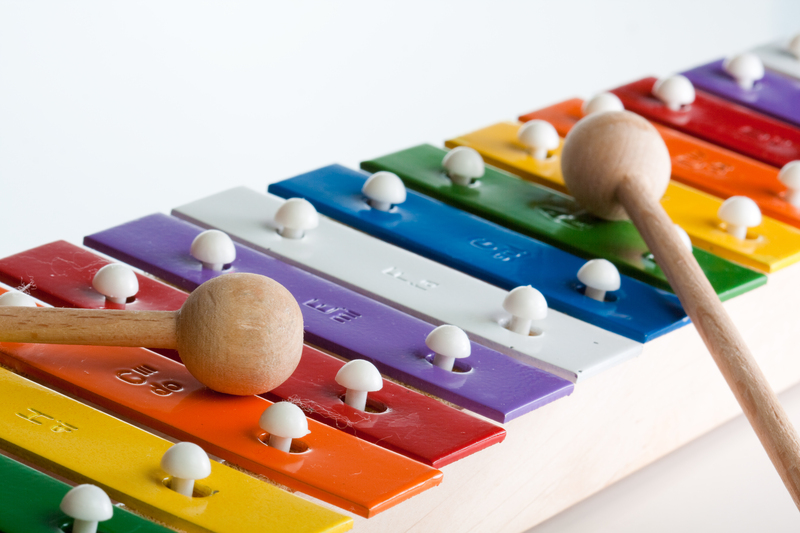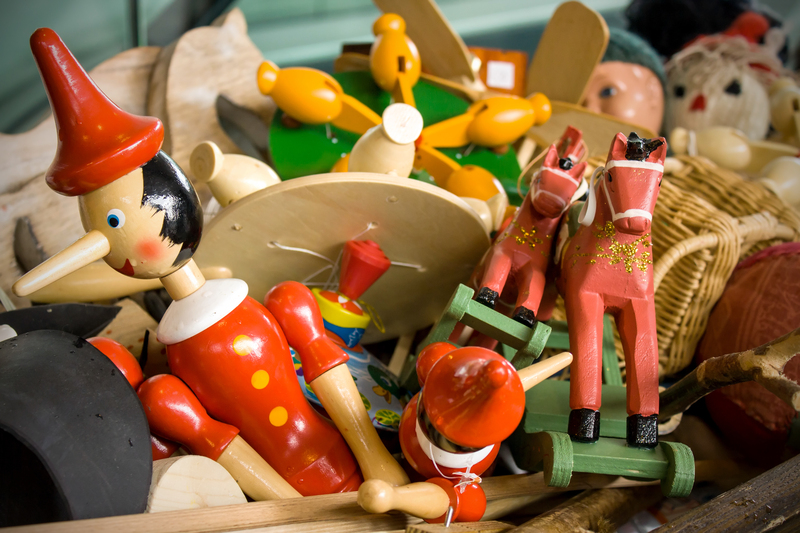Ultimate Guide to Eco-Friendly Pots and Pans Disposal
Is your collection of cookware looking tired, rusty, or missing handles? Don't toss those old pots and pans in the trash! Eco-friendly pots and pans disposal is not only possible, it's easier than you think. With a little creativity and environmental awareness, you can dispose of unwanted cookware responsibly while benefiting your community and the planet. This comprehensive guide provides you with step-by-step solutions for ethical and sustainable pots and pans disposal, recycling options, donation, reuse, upcycling, and more.
Why Does Eco-Friendly Cookware Disposal Matter?
Millions of pots and pans are thrown away each year, contributing to landfill waste and environmental pollution. Some nonstick coatings and metals can persist in the environment, potentially leaching toxins. Choosing eco-conscious cookware disposal methods reduces landfill use, saves valuable resources, and lessens your carbon footprint.
- Metal cookware is recyclable but requires proper processing.
- Nonstick pans can release chemicals if burned or irresponsibly discarded.
- Glass and ceramic pieces break down slowly, clog landfills, and waste energy.
Embracing sustainable cookware disposal is a practical way to support global waste reduction and foster a greener lifestyle.

How to Tell If Your Pots and Pans Are Ready to Be Discarded
Before diving into eco-friendly disposal, consider if your cookware is truly at the end of its life. Look for these signs:
- Warped bottoms that impact cooking efficiency.
- Deep scratches, rust, or chipped coatings that cause food to stick.
- Broken handles or lids that compromise safety.
- Nonstick pans with noticeably flaking or peeling surfaces.
- Pots with irreparable dents or cracks.
If your cookware is still functional, consider donation or repurposing before moving on to recycling or disposal.
Best Eco-Friendly Pots and Pans Disposal Methods
1. Recycling Cookware: The Greenest Option
Recycling old pots and pans is the most environmentally friendly way to dispose of them--especially if they're made of metal! Most cookware is crafted from aluminum, stainless steel, or cast iron, all of which are highly recyclable materials.
How to Recycle Metal Pots and Pans
- Check Local Recycling Policies: Not all curbside recycling accepts large metal objects or certain coatings. Visit your city's recycling website or call local facilities.
- Prepare Cookware: Remove handles (especially plastic or wood), lids, or non-metal parts. Wash away food residue for easier processing.
- Drop Off at Scrap Yards: Many scrap metal yards accept old cookware and may even pay you for pure metals like cast iron or copper pans!
- Recycling Centers and Special Events: Some cities host metal recycling days or have community drop-off points.
- Separate Material Types: If possible, separate stainless steel, aluminum, and other metals for efficient recycling.
Always check with your local facility to conform with regulations, especially for items with nonstick coatings, which sometimes require special handling.
2. Donating Usable Cookware
If your pots and pans are in good working condition, give them a second life! Donating cookware helps reduce landfill waste and supports those in need. Consider these options:
- Charity Thrift Shops (Goodwill, Salvation Army, local non-profits)
- Homeless Shelters or Transitional Housing Programs
- Community Kitchens and Soup Kitchens
- College students and new renters (via local social media groups or apps)
- Friends, family, or neighbors setting up new homes
You'll not only practice eco-friendly cookware disposal but also enrich your community and help others save money. Always clean and inspect your cookware before donating.
3. Upcycling and Creative Reuse
Does your cookware have sentimental value or unique design? Upcycling old pots and pans taps into creativity while minimizing waste. Try these fun ideas:
- Transform pans into planters for herbs, flowers, or succulents
- Use cast iron skillets as rustic wall decor in your kitchen
- Convert lids into clocks or serving trays with DIY kits
- Recycle metal pots as storage for garden tools or art supplies
- Repurpose stainless steel colanders as light fixtures
Upcycling is a rewarding way to reduce demand for new goods while giving your cookware a stylish new function.
4. Manufacturer Take-Back Programs
Some cookware brands offer take-back or recycling programs to promote eco-friendly disposal. Brands like GreenPan, Calphalon, and Cuisinart occasionally run initiatives that let you return your old cookware for proper recycling, sometimes with discounts on new purchases.
- Visit the manufacturer's website or contact customer support for disposal options.
- Follow instructions on how to clean and package your cookware for return.
- Take advantage of incentives--upgrades, loyalty points, or savings.
This is a convenient and responsible way to handle cookware disposal and ensure materials are processed safely.
Can You Recycle Nonstick Pans?
Nonstick pans (think Teflon or ceramic-coated cookware) present a special challenge for eco-friendly pots and pans recycling. Most municipal recycling facilities do not accept nonstick pans in curbside bins due to their synthetic coatings, which require specialized processing.
- Call your recycling center: Ask if they accept nonstick cookware or if it needs to go to a hazardous waste site.
- Remove plastic, wood, or silicone handles: These can be tossed or recycled separately if possible.
- Specialty metal recyclers: Some dedicated scrap metal facilities or events accept nonstick pans; always check first.
- Seek manufacturer mail-back programs when available.
Never burn or incinerate nonstick pans--they can release toxic fumes, including perfluorooctanoic acid (PFOA) if present.
How to Dispose of Ceramic, Glass, and Enamel Cookware
While metal cookware is easy to recycle, glass, ceramic, and enamel pots require extra attention. These materials have different melting points than glass bottles or jars and are not generally accepted in standard curbside recycling streams.
- Contact local recycling or reuse centers: Some specialty locations or artists may accept broken ceramics or glass.
- Upcycle: Large ceramic pans make interesting planters, mosaics, or decorative stepping stones.
- Do not place glass or ceramics in regular glass recycling bins; this can contaminate the recycling process.
Landfill should be the very last resort for these materials, after all donation and upcycling avenues are explored.
Eco-Friendly Cookware Disposal: What NOT to Do
- Don't toss pots and pans in general trash unless you've exhausted all other options.
- Don't leave old cookware on streets, alleys, or public spaces--this creates litter and may be illegal.
- Don't try to recycle cookware with food residue, plastic handles, or mixed materials attached.
- Don't burn cookware--especially nonstick, as it can release hazardous chemicals.
- Don't dump in bodies of water: Metals and coatings can pollute waterways and harm wildlife.
Your extra effort goes a long way in protecting natural resources and keeping communities clean!
Sustainable Alternatives: What to Buy Next
After you've responsibly handled your old cookware, it's time to upgrade to eco-friendly pots and pans for your kitchen. Choose options that offer longevity, low toxicity, and minimal environmental impact:
- Cast Iron: Incredibly durable, fully recyclable, and virtually indestructible.
- Stainless Steel: Long-lasting, non-leaching, and recyclable at end of life.
- 100% Ceramic Cookware: Free of heavy metals, PFOA, and PFAS. Look for reputable, lead-free brands.
- Uncoated Aluminum: Recyclable (but choose anodized for safety).
- Glass: Good for baking, but handle with care and recycle properly if it breaks.
Choose brands committed to sustainable manufacturing and recyclable packaging to further reduce your kitchen's ecological footprint.
Frequently Asked Questions About Eco-Friendly Pots and Pans Disposal
Can I put old pots and pans in the curbside recycling bin?
No, most curbside programs do not accept bulky metal cookware due to processing limitations. Drop off items at a scrap yard or special recycling center.
What should I do with pots and pans that have plastic or wooden handles?
Remove non-metal parts before recycling--dispose of them according to local regulations. Some specialized recycling centers will separate materials for you.
Can I donate skillets with minor scratches or stains?
Typically, yes--as long as the item is functional and safe for cooking. Clean it thoroughly and check with your donation center's guidelines.
How do I find a scrap metal recycler in my area?
Search online for "scrap metal recycling near me" or contact your municipality for a list of certified facilities.
Is it safe to compost old cookware?
No, metal, ceramic, glass, and most synthetic coatings never break down in compost and can harm the process.

Conclusion: Make Eco-Friendly Cookware Disposal a Habit
Practicing eco-friendly pots and pans disposal is an easy yet powerful step toward a less wasteful, more sustainable household. Whether you choose to recycle, donate, upcycle, or participate in manufacturer take-back programs, your action keeps valuable resources out of landfills and in productive use.
By following these practical tips and encouraging friends and family to do the same, you'll help reduce environmental impact, support your local community, and set new standards for responsible living. Let your old cookware find a new purpose--recycle, reuse, and reinvent for a greener future!
- Donate working items when possible
- Recycle appropriately separated metals
- Upcycle for creative projects
- Dispose of non-recyclable items responsibly
Useful Resources
- Earth911 Recycling Directory
- EPA: How Do I Recycle Common Recyclables?
- Goodwill Donation Guidelines
- Calphalon Recycling Program
Embrace eco-friendly cookware disposal for a cleaner kitchen and a cleaner planet!